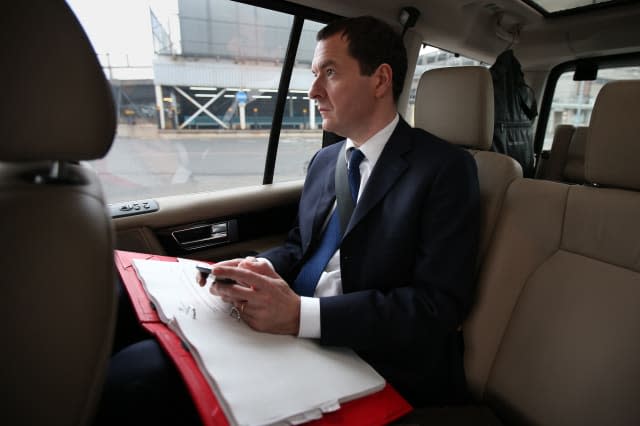Forget tax evaders, it's the tax avoiders we should be tackling

Chancellor George Osborne is looking happy this week. Along with 50 other countries he has signed an agreement to share individuals' tax details in an effort to get those who evade tax to cough up.
Finance ministers from around the world agreed to share details on bank accounts from 2017, which the Treasury said would help gather more information on assets held overseas by British taxpayers.
Why we can only hope that this information gathering exercise turns into a tax gathering exercise there is something weighing on my mind.
Why there is no doubt that tax evasion is wrong and costs the country billions each year – the tax gap between what is supposed to be paid and what isn't paid each year is £34 billion – but don't let the idea of criminals and tax fraudsters distract you from a rather more worrying issue: legal tax avoidance.
Article continues below

Evasion vs avoidance
While evasion is illegal and avoidance entirely legal, they both produce the same outcome: reduced tax take.
In fact estimates suggest tax avoidance costs the UK £25 billion a year in lost tax receipts, thanks to wealthy individuals and corporations employing armies of accountants and tax experts to find clever ways around the tax rules.
This type of jiggery-pokery means Google UK paid just £6 million tax in 2011 to the Treasury on a UK turnover of £395 million and in the same year online retailer Amazon, which had sales of £3.35 billion in the UK, only had a tax expense of £1.8 million. Yes, that's £1.8 million of tax of multi-billion pounds of sales. It plain unfair, especially when ordinary people have seen real wages remain stagnant for four years while the amount of tax they pay has increased.
Let's not forget that on top of that, the richest in society earning £150,000 a year or more, were given an income tax a couple of years ago with the top rate of tax reduced from 50% to 45%.
The government said the cut was to prevent tax avoidance because people were less likely to employ tax avoidance measured if they had to pay 45p in the £1 tax instead of 50p. As I said at the time, why not clampdown on the tax avoidance schemes instead of cutting tax?
And it seems that argument still stands. Why the government is tinkering round the edges, collecting data from Swiss bank accounts to try and detect who's dodging tax in the UK, it has a ready-made list of corporate culprits whose tax avoidance measures are widely known and it's doing nothing.
Read more:
HMRC demands more than £250m from tax avoiders
Is tax avoidance morally wrong?
Public deceived on tax avoidance



